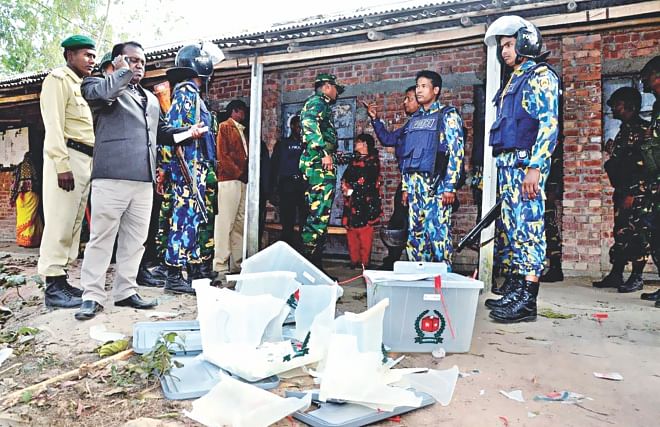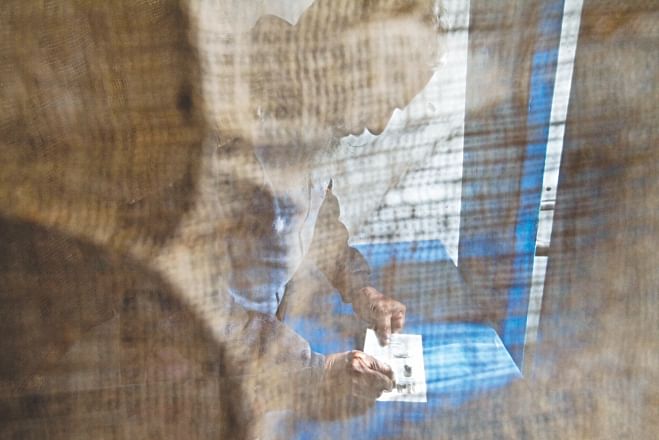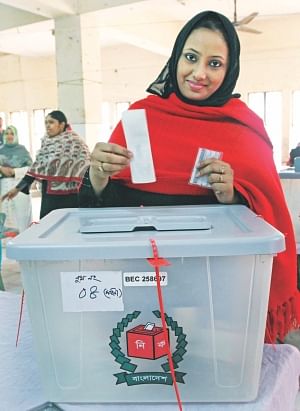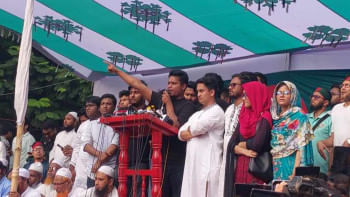Electoral reform: Thinking out of the box

The tenth Parliamentary Elections are over amidst a boycott of the polls by the Bangladesh Nationalist Party (BNP). For the first time, 153 candidates have won uncontested. BNP-led opposition parties opted for widespread violence to obstruct the election process. Fear of violence restrained people from going to polling booths. Initially presence of voters was very thin. Later visibility of voters increased in some polling stations as government ensured tight security.
Now the results have been declared. The newly elected members of parliament have taken their oaths. Sheikh Hasina was sworn in as Prime Minister for the third term. On the other side, Begum Khaleda Zia was not satisfied with the waiving of the Caretaker Government (CTG) system from the Constitution through the 15th Amendment. As a result, we have seen an election that has been held under a party government as it usually happens in almost every developed democracy, but with so many 'ifs' and 'buts'. However, we comprehend, the solution of the recurring political problem in Bangladesh lies more on the faulty voting system that is called 'First Past the Post' (FPTP) or 'Winners Take All'(WTA) than an election-time 'Caretaker Administration' to oversee national polls neutrally. No doubt, we will argue for the Proportional Representation (PR) system instead of the present Winners Take All electoral system.

First, the voting pattern of AL and BNP presents us with some disturbing features. AL got 33.33, 37.44, and 40.13 percent votes in 1991, 1996, and 2001 respectively. BNP, on the other hand, secured 30.81 and 33.61 percent in 1991 and 1996 respectively. In 2001 BNP contested as a part of the 4-party alliance, which together won 47.03 percent of votes. The situation of roughly equal electoral strength implies that under the WTA system small changes in vote shares can lead to very large and unexpected changes in election outcomes. For example, between 1991 and 1996, BNP increased its vote share from 30.81 to 33.61 percent; yet its number of seats decreased from 140 to 116. More dramatically, between 1996 and 2001 AL's vote share increased from 37.44 to 40.13 percent, and yet its number of seats fell from 146 to 62! By contrast, the PR system rules out any reversal, as it guarantees that the outcome in terms of number of seats will move in the same direction as vote shares. If we calculate the number of seats proportionally AL would have bagged 90, 112, 120 and 144 seats in 1991, 1996, 2001 and 2008. On the other hand, following this process, BNP would have got 92, 101, 123 and 97. Thus while WTA exacerbates instability, the PR system promotes stability.

Second, we see huge pressure for manipulation for winning the elections in the WTA system. This also tries to abuse the voting process in many ways. But the PR system serves a direct link between the local vote outcome and whether or not the local political leader gets elected to the parliament. Hence local political actors would not have as much stake in the local voting outcomes as they have now. Not only that, the decrease in pressure for manipulation and abuse of the voting process will undercut the importance of muscle power and money. Elections under PR therefore may not be as dependent on mastans as they are now. Furthermore, under the PR system, there would be little scope and incentive to manipulate election through resetting the boundaries of constituencies.
Third, to the extent that the election would no longer be about local candidates, the quality of the election campaigns would improve. The attention would now be focused on national issues and the role of particular parties with regard to national issues. In other words, while the WTA lowers the attention from the national to the local, the PR system may help raise the attention from the local to the national level. Moreover, the WTA system creates pressure for formation of pre-election alliances, forcing political parties to often make compromises that are unwarranted from the point of view of both the political parties themselves and the nation. By contrast, under the PR system, there is no necessity for parties to form pre-election alliances. They can therefore contest on the basis of their distinctive platforms or manifestos, and feel free to highlight differences among themselves and test their true strength without any restraint. Such a “clean” campaign, together with a focus on national issues, is likely to lead to an improvement in the election campaign.
Fourth, a switch to the PR system may also help nomination and election of better, more qualified candidates to the parliament. The essential function of the parliament is the enactment of laws concerning national issues. This function requires certain special qualities, including breadth of knowledge, ability to engage in national level discussions, and conviction and capacity to defend national interests. Unfortunately, the current WTA system is often leading to the nomination and election of parochial and wrong kinds of people to the parliament. Political parties are often becoming hostages to local level mastans who are assuring “delivery” of their constituencies. The system has therefore promoted criminalization of politics in Bangladesh. The PR system, by contrast, may create greater scope and justification for nominating better quality candidates. People all over the country would vote for the same party list. Hence parties would feel pressured to include in their lists people with national reputations. It is generally people with exceptional qualities who are likely to be nationally reputed. Through a feedback process, the PR system may encourage people of better quality to join political parties and to be active in them.
Fifth, another important point is increasing the number of seats in parliament. In 1973, there were 300 seats for 7.5 crore people. Over the years the population has doubled but the number of seats has remained same. In the House of Commons in the UK, the number of seats increases in proportion to the number of voters. We should also think of the same.
Sixth, we should also ensure participation of non-resident Bangladeshis in elections. They are a significant source of foreign currency. They also represent our country abroad. In Mozambique, there are two seats reserved for non residents. We should rethink over the constitutional impediment on electing dual citizens. If a Bangladeshi holds a responsible position abroad then why should he not be allowed to represent his own country? In our country, many candidates have dual citizenship but they have to hide this information.
Finally, in a proportional system, the party gets priority over the person. People will compare manifestos of the contending parties. Parties will also be sincere in making their pledges. In the present system of election, we follow an anachronistic system of loyalty to a person. It is in denial of plural space. And thus our democracy has degraded into electing an absolute leader. Therefore, to come out of our present situation, we need to reform the election system. This is more important than the ongoing debate for and against caretaker government. Our electoral system should deliver meaningful results; otherwise following the ritual of voting will not bring any positive change.
Dr. Nazmul Ahsan Kalimullah, Chairman, JANIPOP & Professor, Pubilic Administration, Dhaka University.
Dr. A.K.M. Reazul Hassan, National Volunteer, JANIPOP & Professor, BCS (General Education).

 For all latest news, follow The Daily Star's Google News channel.
For all latest news, follow The Daily Star's Google News channel. 



Comments